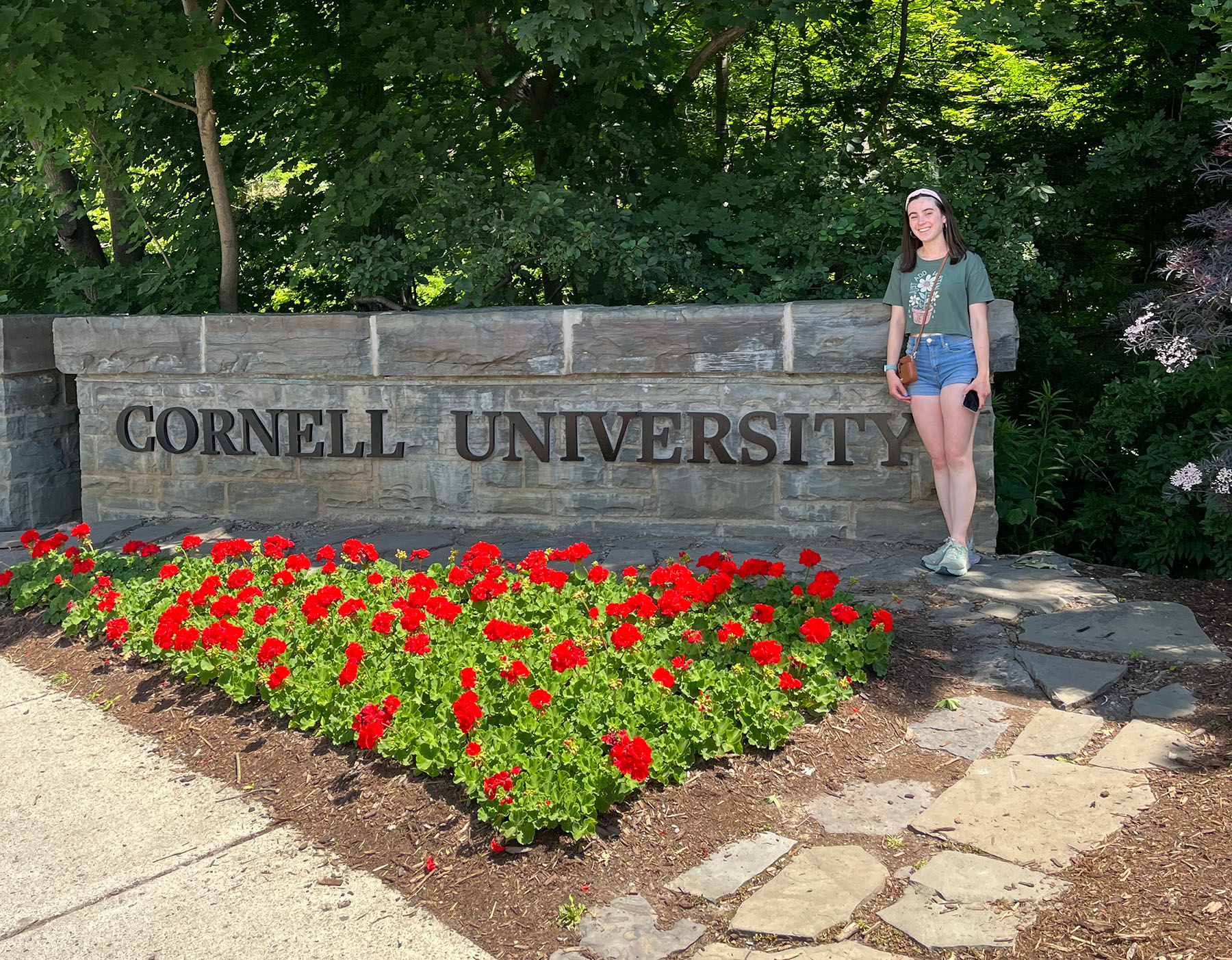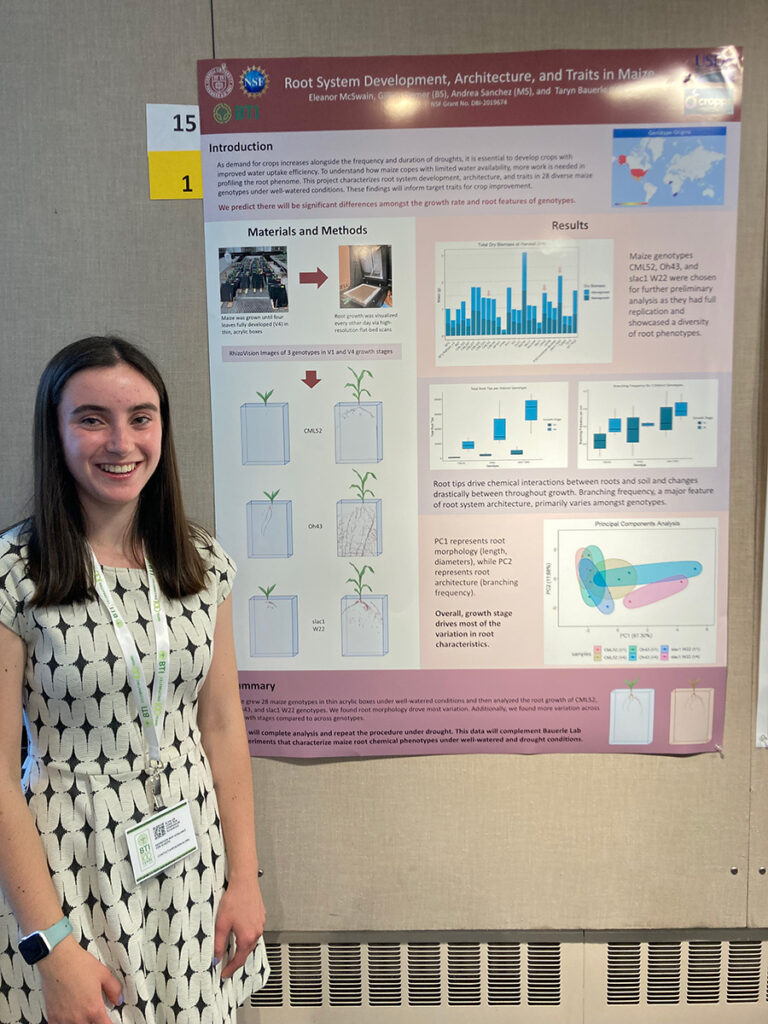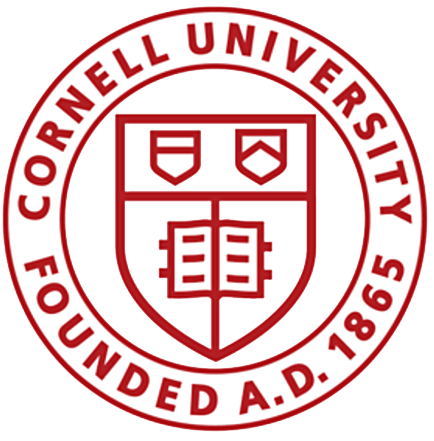Explore the world of research as we delve into the experiences of summer scholars with the Center for Research on Programmable Plant Systems (CROPPS). Join us in conversations with budding researchers as they walk us through their time in the 2024 Research Experiences for Undergraduates (REU) program for CROPPS hosted by the Boyce Thompson Institute (BTI), Cornell University, and the University of Illinois Urbana-Champaign.
Exploring the World of Research
An Inside Look with Nora McSwain from the CROPPS REU Program

Nora McSwain
- University: Boston College
- Major: Biology
- Graduation year: 2026
- Hometown: Skaneateles, New York
- Project: Root System Development, Architecture, and Traits in Maize
- Partner: Boyce Thompson Institute (BTI)
- Mentor: Taryn Bauerle and Gillian Gomer
The CROPPS program combines researchers from plant sciences, engineering, computer science, and the social sciences into an integrated program to plant biological research and translation. Tell us about your REU project with CROPPS faculty and fellow students
“I grew several genotypes of maize under well-watered conditions in thin acrylic boxes, which allowed me to visualize the roots. Using a flat-bed scanner, I photographed the roots every other day until the plants reached the V4 growth stage. I then analyzed the images using RhizoVision, an open-source image analysis software designed to measure various root features. This software enabled me to generate data on root growth rate, spatial occupation, diameter, and length. In the future, the lab plans to conduct the same experiment under drought conditions.
I was particularly drawn to this project because of its important implications for the future. As the demand for crops increases, along with the frequency and duration of droughts, it is essential to develop crops with improved water uptake efficiency. To better understand how maize copes with limited water availability, more research is needed to profile the root phenome. My research helps bridge this gap.
What aspect of programmable plants do you find most interesting?
“I am particularly interested in interpreting the signals sent out by plants. There are many exciting projects that explore this idea, such as the Stroock and Jander labs’ use of AquaDust nanoparticles to better understand plant-aphid interactions. I believe that climate change is one of our world’s most pressing issues. I hope to work on research to mitigate the effects of climate change.”
CROPPS believes in the power of mentorship for young scientists. Tell us ways mentorship has impacted you as a scientist
“I have greatly benefited from having a mentor to answer my questions about graduate school and help tailor the summer experience to my interests. My mentor has provided invaluable support and guidance. For instance, after I expressed interest in attending a conference, my mentor assisted me in applying to present my research from this summer at one.”
What has been your favorite part of the REU program?
“I really enjoyed exploring different aspects of plant science through the weekly seminars, discussions with roommates, and field trips to places like the Cornell High Energy Synchrotron Source. I’m proud that I completed the trial for the maize genotypes and collected some preliminary data, which I plan to present at a conference.”
How has this summer experience prepared you for the future?
“This experience has provided valuable insight into what a career in research looks like and helped me discover the type of research I enjoy. I was fortunate to gain exposure to research in the greenhouse, field, wet lab, and dry lab. I’ve learned that I prefer working in a wet lab and hope to pursue research careers focused on benchwork. Additionally, I’ve acquired valuable skills applicable to any type of research, such as randomized block design and batch processing, and gained experience in writing research proposals and abstracts.”





